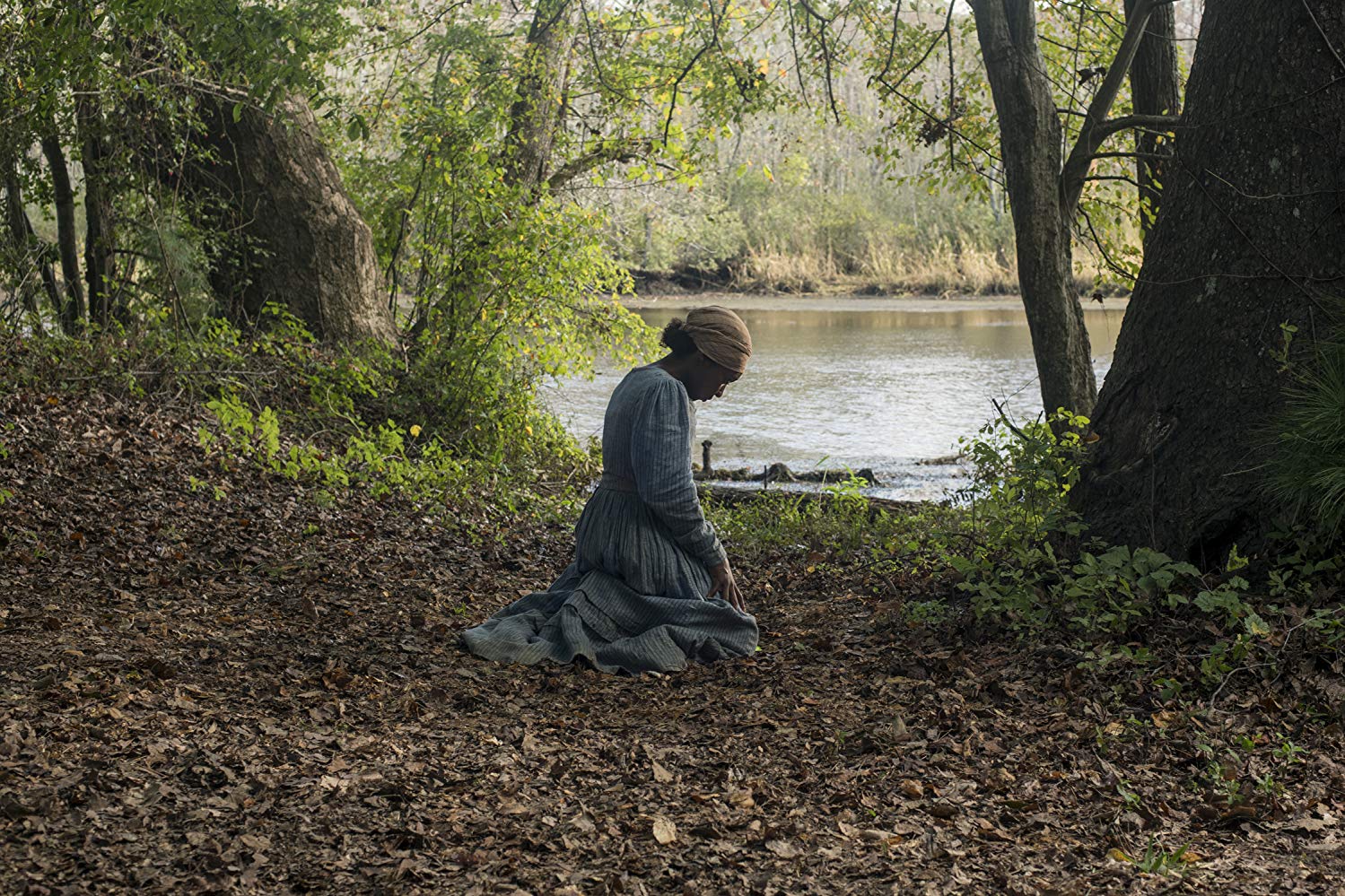The biographical film Harriet (PG-13) opens this weekend, telling the story of former slave and heroic abolitionist Harriet Tubman.
“Minty” is a determined and smart Christian woman living in 1840s Maryland.
She’s also a slave. Her mother and father are slaves. Her siblings are, too. During the day, they toil the field under the watchful eyes of their owner, a wicked man who sometimes whips and beats them to maintain “order.” At night, they recover and rest, preparing for the next day’s work under the hot sun.
They sing spiritual songs to stay sane—songs about a future Promised Land ruled by a loving God who blesses his people.
Minty, too, sings about the Promised Land, but she also has an earthly goal in mind.
“I wanna be free,” Minty tells a friend.
She doesn’t have a plan to escape the plantation, yet she does have the resolve it will take to get to Philadelphia, which is about 100 miles away and—for safety reasons—must be accessed by foot.
Finally, on a dark and starry night while her master is sleeping, Minty sets out on a long journey. Her pastor—a black man—tells her to follow the north star to ensure she doesn’t get lost. He also gives her spiritual advice—advice she takes to heart.
“Trust in God,” he says.
The biographical film Harriet (PG-13) opens this weekend, telling the story of a slave named Minty who escapes and changes her name to Harriet Tubman once she reaches the anti-slavery society in Philadelphia. It stars Cynthia Erivo (Bad Times at the El Royale) as Tubman, Leslie Odom Jr. (Murder on the Orient Express) as abolitionist William Still, Janelle Monáe as hotel owner Marie Buchanon, and Joe Alwyn (Operation Finale) as Gideon Brodess, a member of the family that bought Tubman.
The film follows Tubman as she escaped, alone, by traveling a secret route known as the Underground Railroad—a route filled with unsung heroes who lived in slave states but worked to give slaves freedom. Eventually, Tubman herself became a “conductor” on the Underground Railroad and headed back to Maryland to free her family and other slaves. When the Civil War started, she also served as a Union spy and the leader of an armed expedition.
Harriet isn’t a faith-based film in the modern use of that term—its rough content proves that—but it nevertheless includes more faith-based content than you’ll see in most mainstream films. The movie depicts Tubman as a Christian woman who was guided by her faith and who relied on prayer (and sometimes visions) to determine God’s will.
When she arrives in Philadelphia and is asked who accompanied her, she responds it was “just me and the Lord.” When she is running away from slave catchers, she often pauses in the forest to pray. She believed God supported her cause. She was right.
Warning: minor/moderate spoilers!
(Scale key: none, minimal, moderate, extreme)
Violence/Disturbing
Moderate. A slave is hit with a gun, and we see a bloody gash across his eye. Slave catchers use scent hounds to track slaves. We see scars (from whippings) on the backs of Tubman and other slaves. Female slaves are slapped several times in the film. A free black woman is beaten and kicked in the head. A man is shot in the head and dies. Throughout the film, slaves are treated like animals in what is perhaps the movie’s most disturbing element.
Sexuality/Sensuality/Nudity
Minimal. Tubman and her husband kiss several times. It is implied that Gideon previously had a sexual relationship with Tubman. We see Tubman’s scarred back as she prepares to take a bath. (Nothing else is seen.) We hear the word “brothel.”
Coarse Language
Moderate. N-word (12), b–ch (4), h–l (5), d–n (2), GD (1), f-word (1), OMG (1).
Other Stuff You Might Want To Know
A slave catcher warns Tubman not to commit suicide.
Life Lessons
The Gospel brings hope: Faith was the source of strength for Tubman and other slaves. We see them sing spiritual tunes and pray throughout the movie.
Scripture can be twisted: The slave owners told the slaves that God ordained slavery. Tubman and the other slaves knew better.
Change requires sacrifice: Slavery wouldn’t have been abolished in the U.S. without heroes like Tubman—men and women who were willing to die for the cause.
Worldview/Application
The film opens with the scene of an outdoor church service—and a black minister quoting the Bible to tell the slaves to obey their masters. The minister, of course, was only following the orders of the white masters, who sat in the background nodding their approval.
But Tubman and the others knew their Bible better than their owners did.
The real-life Tubman knew that a Gospel based on grace, mercy, freedom and salvation couldn’t—and didn’t—condone slavery. She knew that in Christianity, there was “neither Jew nor Greek, there is neither slave nor free, there is neither male and female” because we are “all one in Christ Jesus” (Gal. 3:28). She read stories about God freeing the Hebrews from slavery, and she knew God didn’t want people in shackles.
As she tells Gideon, “God don’t mean (for) people to own people.”
What Works
The plot. The infusion of faith. Also, Cynthia Erivo is impressive as Tubman.
What Doesn’t
The slave owners come across as being caricatures. During some moments, it seems almost like a parody.
Discussion Questions
1. What role did Tubman’s faith play in her desire to be free? What role did it play in her rescuing of others?
2. What does the Bible say about slavery? What would you say to someone who claims it supports slavery?
3. Name five positive character traits of Harriet Tubman.
4. How did Tubman stay encouraged when all hope seemed lost?
Entertainment rating: 3.5 out of 5 stars. Family-friendly rating: 3 out of 5 stars.
Harriet is rated PG-13 for thematic content throughout, violent material and language including racial epithets.
